Keeping the Humanities Thriving with Funding and Creativity
Last spring, when Congress authorized emergency Coronavirus Aid, Relief, and Economic Security (CARES) Act funding, Georgia Humanities received $644,200 to regrant to nonprofit humanities organizations in our state. We awarded CARES Act grants to 77 museums, libraries, historical societies, colleges and university departments and centers, and other organizations within each of our 14 congressional districts. Ranging from $5,000 to $15,000, CARES grants allowed organizations to keep staff employed; to protect facilities and collections; to pivot to virtual and digital programming; and to prepare facilities for reopening according to public health recommendations for reduced crowd size and social distancing.
The stories we heard—of resilience, of creativity in the face of hardship, of persistence and gratitude—as a result of the CARES funding truly inspired us. We know that our humanities network is stronger than ever. Read some of the stories we heard, and please support these organizations and their programs.
Andrew Low House Museum | Savannah
For months, they lost 95% of normal revenue. CARES funds helped them cover the costs of reopening, which in turn helped them earn revenue to keep staff employed. “Countless visitors have expressed thanks for being a place where they can explore history and feel some small sense of normalcy again.”
The Learning Center at Senior Citizens Inc | Savannah
Funds helped them transition to virtual programming. “We will now always offer virtual classes because of their popularity. This was an unexpected discovery.”
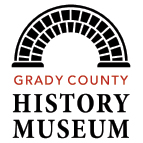
Grady County Historical Society | Cairo
“We are grateful for these funds as they allowed us to reopen and get over the financial hump that seemed insurmountable.”
Chattahoochee Valley Libraries | Columbus
Funds helped them create virtual programming, “an amazing vehicle to stay in touch with customers hungry for learning opportunities and engagement.”
Rylander Theatre | Americus
Funds covered staff salaries and utilities. “The cooperative spirit that has been shown this year is remarkable.”
Troup County Historical Society | LaGrange
They embarked on “an extensive documentation project, called History Is Happening, to preserve the stories of this unusual time. Oral history interviews, images, and masks, and protest signs are being gathered to record the effects of the pandemic and social justice protests on our local community.”

Breman Museum | Atlanta
An online speaker series averaged 100+ live participants per event, saw an increase in the 18–24 age group, and had a greater geographical reach. Going forward, they will “likely continue to develop new online/digital programs and convert existing programs to an online format.”
DeKalb Library Foundation | Decatur
Funds supported “Take the Internet Home with You,” DeKalb County Public Library’s mobile hotspot checkout program intended to bridge the digital divide for those without internet access. They also kept their system-wide Wi-Fi signal on and positioned the routers so that patrons could access free Wi-Fi in the parking lots of all 23 library locations. Wi-Fi has been accessed more than 22,200 times since closure.

Wren’s Nest | Atlanta
“The CARES grant enabled us to pay for the upkeep and maintenance of our grounds. As the oldest historic house museum in Georgia, the Wren’s Nest’s outdoor spaces are just as critical to our mission to share the art of storytelling as the house itself.”
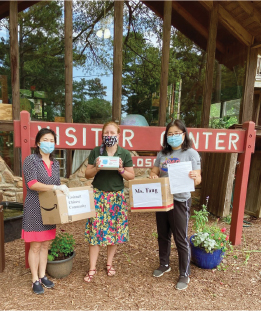
Autrey Mill Nature Preserve & Heritage Center | Johns Creek
Funds enabled more than 130 heritage programs. “It is our ardent belief that we have provided the community with more than a learning experience, but a much-needed reprieve from life’s daily stress.”
Marcus Jewish Community Center of Atlanta | Dunwoody
They converted their annual book festival to a virtual “Book Festival in Your Living Room,” and invited all North American JCCs to participate. More than 85 JCCs signed on to bring the program to their own communities and “showcased our Atlanta JCC as a national leader in collaboration and partnership. We were very proud to initiate and lead this massive endeavor to ensure cultural programs were available nationwide.”
Gwinnett Public Library | Lawrenceville
The library system suspended all programs while they experienced a budget shortfall of $1.5 million. “Thanks to the CARES grant, however, we have been able to acquire the needed equipment and offer more than 1,000 virtual programs to the Gwinnett County community.”
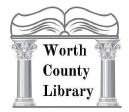
Worth County Library | Sylvester
“The library was the only source in Worth County for computers and Wi-Fi—the community relies heavily on the library as a business center.”
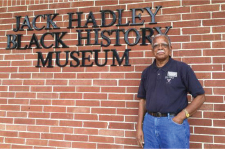
Jack Hadley Museum | Thomasville
Funds allowed the museum to digitize 500 items from their collection and to create materials for educators.
Northeast Georgia History Center | Gainesville
“Without the CARES funds, we would have been hard-pressed to keep our operations going in a time when historical education and context are more important than ever.”

Hall County Library System | Gainesville
“We have received an enormous amount of positive feedback regarding the programs and services made possible by this grant.” They were able to provide the Tutor.com program to families and teachers.
Stephens County Historical Society & Currahee Military Museum | Toccoa
Funds allowed them to offer free admission to the 101st Airborne Division, which has a tradition of running 6 miles up and down the Currahee Mountain to visit the military museum. The grant “made continuation of that tradition possible even during this pandemic.”
City of Washington, Georgia
Funds enabled the improvement of exhibits and signage for the historic site and history museum the city operates. They also began working on a better digital presence.
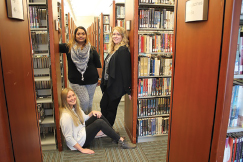
Athens-Clarke Public Library | Athens
“We were faced with serious economic cuts. We had to be nimble and adapt. The great social unrest we faced as a nation pointed us in the direction of expanding our resources with books that focus on equity, diversity, and inclusion for each of our system’s branches.”
Chieftains Museum/Major Ridge Home | Rome
CARES funding “was the saving grace” for them, as closed facilities created a severe loss of revenue and would have led to a choice of maintaining the house, a National Historic Landmark, or maintaining the museum staff. Funds supported staff, the Ridge home, and digital programming.
Funk Heritage Center | Waleska
“Thanks to the CARES grant, the museum now has an online portal to provide increased access to lectures, artifacts, collections, exhibits, and teacher resources.”
Bandy Heritage Center | Dalton
The CARES grant allowed them to purchase climate-control equipment for their archives. “Our capacity to serve the community has increased dramatically, and the support of GH through the grant will benefit our community immediately and for decades to come.”
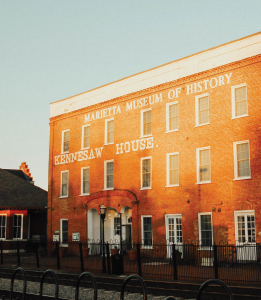
Marietta Museum of History | Marietta
“Taking the pressure off worrying about how to fund employee payroll enabled us to be more creative.” They created a new Facebook Live segment, “History Loves Company,” in which staff would visit and tell the story of a historical home, site, or building. “All of this was possible because of the grant we received.”
East Georgia State College Library | Augusta
Funds paid for hotspots for internet access. “With increased job losses, some students had to cut internet service due to financial restraints; the hotspots allowed them to access their online classes.”
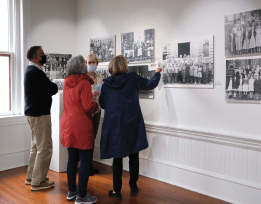
Madison-Morgan Cultural Center | Madison
“Funds made a meaningful impact on our ability to open up our historic building to the public again.”

Bulloch County Historical Society | Statesboro
With the funds they created videos of historical stories, shared through email to members. The stories were so well received, they gained 98 new members, an 85 percent increase in regular membership. “This project is by far one of the best ones in our almost-50-year history. It would not have happened without the CARES grant from Georgia Humanities.”
